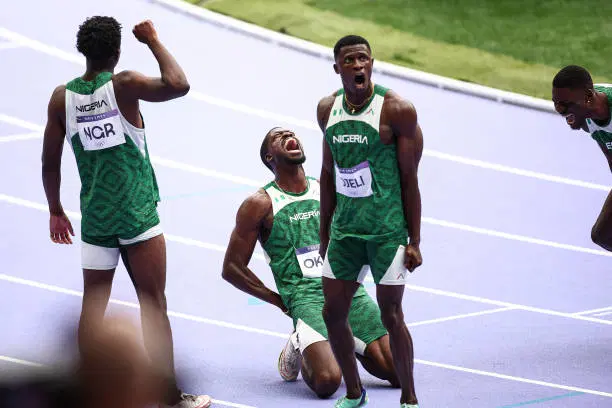The Nigerian athletics team’s withdrawal from the World Athletics Relays in Guangzhou, China, has sparked a controversy surrounding visa delays and their impact on the team’s participation. The Athletics Federation of Nigeria (AFN) attributed their withdrawal to the late issuance of visas, claiming that the timing, just before their scheduled arrival, rendered participation impossible. They criticized the process, suggesting it was either a result of administrative incompetence or a deliberate attempt to exclude Nigerian athletes. The AFN emphasized the extensive travel time required for their athletes to reach Guangzhou from their various locations, which would have resulted in their arrival after key events had already concluded. This, they argued, made participation unfeasible for athletes who had dedicated years of training for this opportunity.
While the AFN placed the blame squarely on the visa process and, by implication, the host country, World Athletics, the governing body of the sport, offered a different perspective. They maintained that the visa entry criteria were clearly communicated to all stakeholders and that the Local Organizing Committee (LOC) in Guangzhou had collaborated throughout the process. World Athletics insisted that no visas were denied to athletes or support personnel from either Nigeria or the Dominican Republic, another nation that experienced visa issues. They reiterated that adhering to the correct visa process and timelines is crucial for all participants to ensure timely issuance. Furthermore, they stated that they had received no early indication of problems from the AFN and pointed out that several Nigerian athletes and officials had successfully obtained visas.
The AFN president, Tonobok Okowa, expressed his disappointment, highlighting that the athletes had submitted all required documentation in good faith and well in advance. He saw the late visa issuance as a major setback for the athletes, effectively robbing them of the chance to compete. The AFN called on World Athletics to review their host country selection criteria, emphasizing the need for competitions to be held in nations with visa processes that genuinely support global participation. This call echoes the broader issue of equitable access to international sporting events, particularly for athletes from developing nations who may face greater challenges in navigating complex visa procedures.
Bukola Olopade, the Director-General of the National Sports Commission (NSC), exonerated both the AFN and the NSC from any responsibility for the visa debacle. This statement confirms the Nigerian sporting authorities’ view that the delay was external and beyond their control. Meanwhile, World Athletics reiterated their established process for assisting member federations facing visa challenges, stating they work closely with both the LOC and the affected federation to address such issues. They emphasized that this process has been in place for many years and is designed to mitigate potential problems.
The Nigerian team’s withdrawal represents a significant loss, not only for the athletes themselves but also for the competition as a whole. The World Relays serves as a qualifier for the World Championships, and Nigeria’s absence deprives them of the opportunity to secure their place in the prestigious event. Beyond the immediate impact on their qualification prospects, the missed competition also represents a lost opportunity for the athletes to gain valuable international experience and compete against some of the world’s best. The financial implications of the withdrawal are also substantial, with the AFN pledging to pursue appropriate compensation for the losses incurred. These losses include not only the costs associated with travel arrangements and accommodation but also the potential loss of earnings and sponsorship opportunities.
This incident highlights the complexities of international sporting events and the crucial role of efficient and equitable visa processes. It raises questions about the responsibility of host nations and governing bodies to ensure that all participating athletes have a fair and equal opportunity to compete. The AFN’s call for a review of host country selection criteria underscores the need for a more transparent and supportive system that considers the specific challenges faced by athletes from different nations. As international sporting competitions continue to grow in scope and importance, such issues deserve careful consideration to ensure the true spirit of global participation and fair play. The controversy surrounding Nigeria’s withdrawal serves as a reminder of the importance of streamlined administrative processes and the need for greater collaboration between sporting bodies and host nations to create a level playing field for all athletes.


